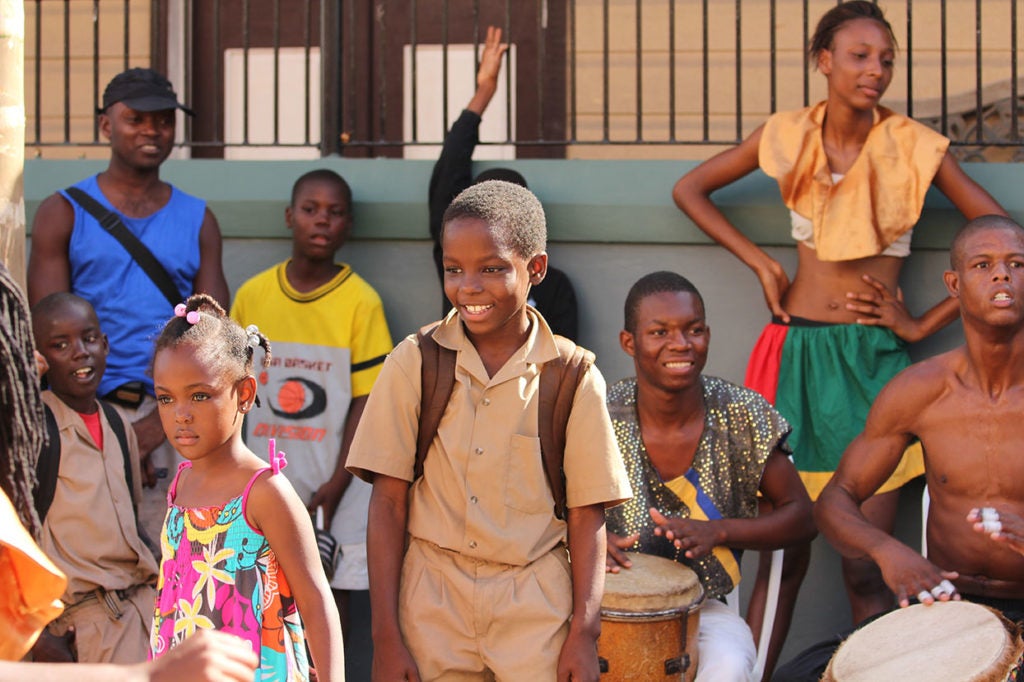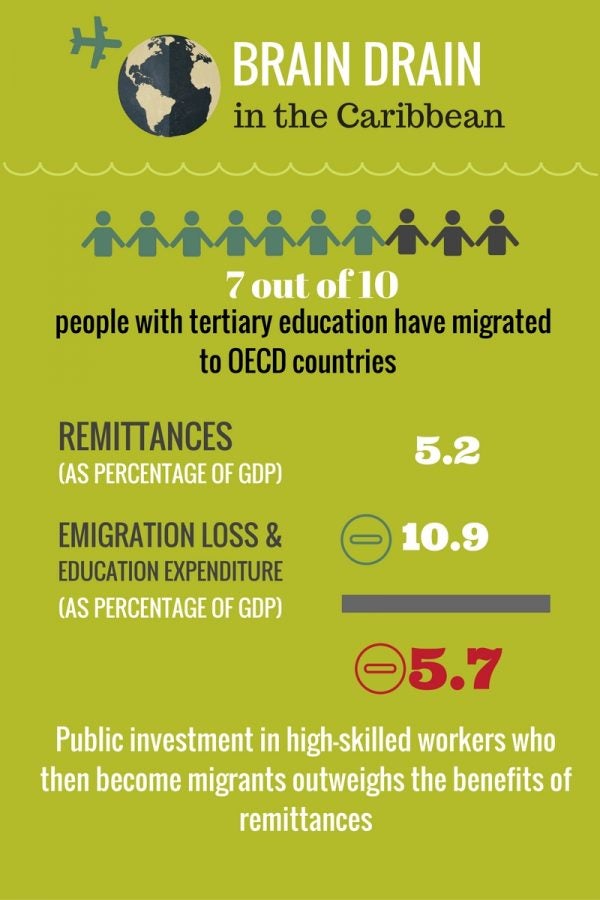By Julián Cristiá and Steven Ambrus Ask any parent in the Caribbean what they most want for their kids, and you’re very likely to hear it summed up in one word: education. Parents know that learning can bring their children satisfaction, success and prosperity, and they’ve opened their wallets, spending a higher share of their household budget on schooling than in the United … [Read more...] about When the Scientific Method Goes to School
education
Brain Drain: Are we investing in the ‘right’ skills to keep our talent?
Caribbean countries invest a lot of economic resources in higher education. The rationale for investing public funds in education follows from the public and private expected returns: boost country-level growth and welfare, and increase productivity and earnings. However, if beneficiaries of public education migrate, these public and private returns are received by the host … [Read more...] about Brain Drain: Are we investing in the ‘right’ skills to keep our talent?
Targeting, partnerships, and flexibility are building blocks to provide basic services in Haiti
by Winsome Leslie and Ralph Denize It is widely accepted that access to basic services is a key aspect of improving the lives of individuals at the base of the economic pyramid in any country. Unfortunately, basic services in Haiti are an outlier in two respects when compared with the rest of the Americas: … [Read more...] about Targeting, partnerships, and flexibility are building blocks to provide basic services in Haiti
How can Jamaica lower the costs of energy? (Part I)
Photo courtesy of Jamaica Observer (from left) Lumas Kendrick, IDB Sr. Energy Specialist,; Therese Turner-Jones IDB-Country Representative;, Christopher Brown-DBJ Business Development Manager; Dr Ruth Potopsingh, UTech Associate Vice-President, & IDB ConSOC Member, and Dr Earl Green, IDB Consultant-Sustainable Energy & Engineering Energy Education: Jamaica is … [Read more...] about How can Jamaica lower the costs of energy? (Part I)
Curriculum revisions: new perspectives and learning methods
The Second Basic Education Improvement Program (2nd BEIP) is the follow-up of the first BEIP program that was executed from 2004 to 2012. As a result of some operational and coordination circumstances between the Executing Unit and the Ministry of Education and Community Development (MOECD), this program took longer than initially planned to finalize. Toward the end of … [Read more...] about Curriculum revisions: new perspectives and learning methods





